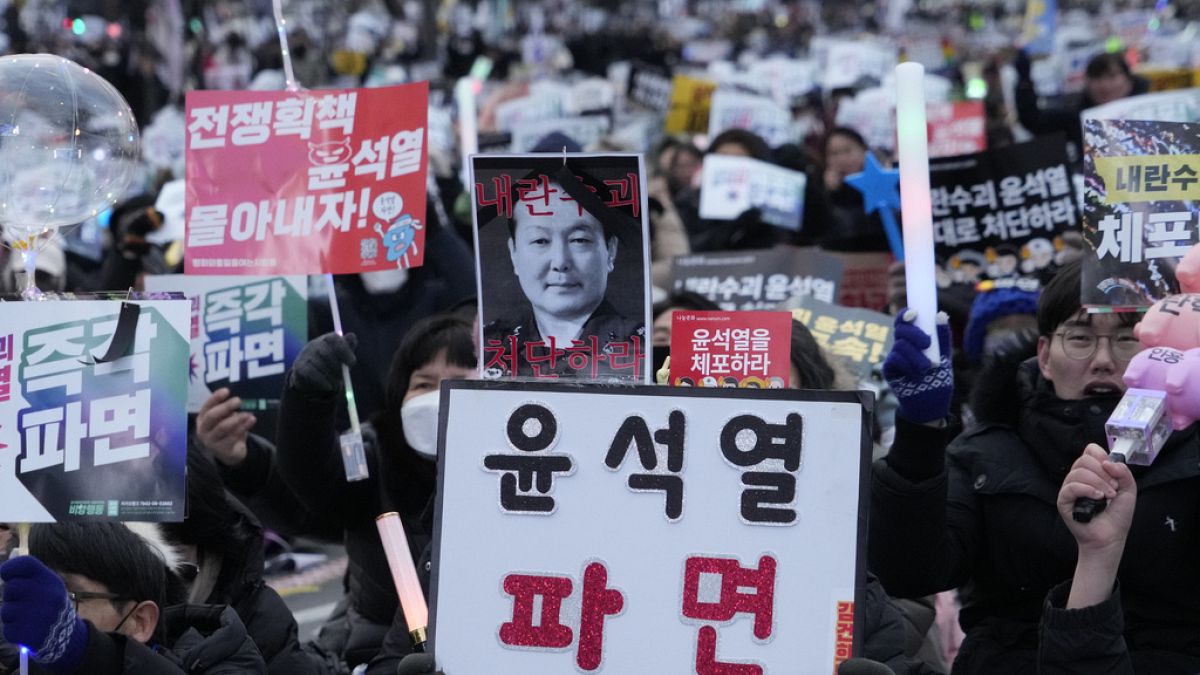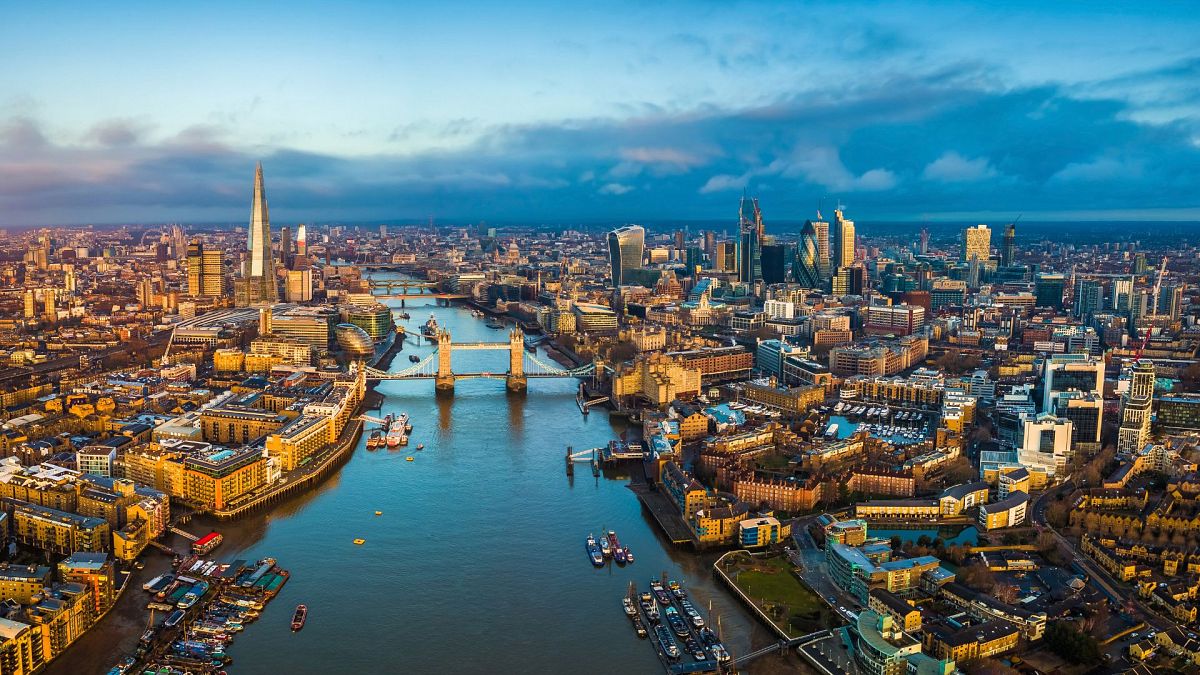Opposition and pro-Yoon protests continue in Seoul after failed arrest

While crowds of protesters gathered to demand Yoon’s arrest on Saturday, another demonstration was held by around 1,000 supporters of the impeached president in front of his residence in Seoul.
Thousands of protesters took to the streets of central Seoul on Saturday to demand the immediate arrest of impeached South Korean President Yoon Suk-yeol over a failed martial law declaration that triggered an unprecedented political crisis in the country.
Those gathered carried placards that read “Arrest Yoon Suk-yeol” and words that condemned Yoon after he defied attempts by South Korean investigators to detain him on Friday after nearly a six-hour standoff between his presidential security guards and investigators.
The Corruption Investigation Office for High-ranking Officials (CIO) said it withdrew its investigators after the guards and military troops blocked them from entering Yoon’s residence due to concerns about their safety.
It was the latest confrontation in a political crisis that has paralysed South Korean politics and seen two heads of state impeached within a month.
As protesters gathered to demand Yoon’s arrest on Saturday, another demonstration was held by around 1,000 of his supporters in front of his residence in Seoul.
The demonstration at Yoon’s residence had begun Friday when hundreds of supporters gathered. Outside the residence, a group of pro-Yoon protesters braved freezing temperatures for hours and waved South Korean and American flags while chanting slogans vowing to protect him.
Yoon, a former prosecutor, has resisted investigators’ attempts to question him for weeks, and the last time he is known to have left his residence was on 12 December, when he went to the nearby presidential office to make a defiant televised statement to the nation, in which he vowed to fight efforts to oust him.
The National Police Agency has said it plans to investigate the chief and deputy chiefs of the presidential security service on suspicion of obstructing official duty and summoned them for questioning on Saturday.
According to local media, the country’s anti-corruption agency has until 6 January to carry out the arrest of the embattled Yoon on charges of insurrection and abuse of power linked to his attempt to impose martial law.
Yoon triggered an unprecedented political crisis
It all began on 3 December when Yoon, apparently frustrated that his policies were blocked by an opposition-dominated parliament, declared martial law and dispatched troops to surround the National Assembly.
Within hours, Parliament overturned the declaration in a unanimous vote and impeached Yoon himself on 14 December, while South Korean authorities opened a criminal investigation into the events.
On 31 December, a Seoul court issued a warrant to detain Yoon and a separate warrant to search his residence, but enforcing them is complicated as long as he remains in his official residence.
Yoon’s lawyers, who filed a challenge to the warrant on Thursday, say it cannot be enforced at his residence due to a law that protects locations potentially linked to military secrets from search without the consent of the person in charge.
The CIO anti-corruption agency said it would discuss further actions but did not immediately say whether it would make another attempt to detain Yoon. The warrant for his detention is valid for one week.
Yoon has defended his martial law decree as a necessary act of governance, portraying it as a temporary warning against the Democratic Party, which he has described as an “anti-state” force obstructing his agenda with its legislative majority.
He has remained defiant, ignoring requests for questioning and vowing to fight.
Video editor • Jerry Fisayo-Bambi
World News || Latest News || U.S. News
Source link



